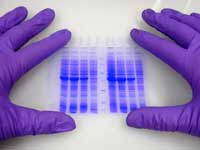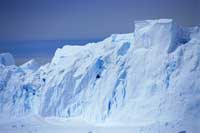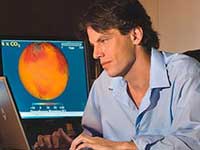Module Overview

|
| Image Credits: Microsoft Clip Art |
What practices do scientists engage in to reach consensus about climate change?
If you’ve ever watched CSI, the television crime-scene drama, you are already familiar with scientific inquiry. Forensic scientists visit crime scenes to collect fingerprints, blood samples, DNA and other physical evidence. They use the latest technology to analyze the evidence they uncover. They then present the results to juries in trials to aid criminal prosecutions or to clear people who have been wrongly accused.

|
|
| Image Credits: Microsoft Clip Art |
Climate science research and crime scene investigations share interesting similarities. For example, climate scientists, like their forensic counterparts, use the latest technology to collect data. They must observe and record changes in variables (such as land and ocean temperatures, greenhouse gas concentrations, or glacial and sea ice mass) that affect Earth’s climate.
However, climate scientists have a much harder job. A crime scene investigation typically is limited to a particular event that occurred on a specific date. By contrast, climate scientists not only collect and analyze information related to current climatic conditions on Earth, they must also hunt for clues or proxy data (such as tree rings or coral growth patterns) that provide evidence of Earth’s climatic conditions before humans kept written records.

|
| Image Credits: Microsoft Clip Art |

|
| Image Credits: Microsoft Clip Art |
Climate scientists are not meteorologists. Meteorologists are the scientists who observe and predict weather (the atmospheric conditions and events at a given time for a given place). Climate scientists study weather patterns over long periods of time (ranging from decades to millennia). Climate scientists also analyze patterns and learn how different elements of Earth’s climate system interact and influence each other.
With this growing body of knowledge that explains how our climate system works, these scientists can make increasingly reliable predictions about our climate (the long-term atmospheric conditions and trends for specific regions and the planet as a whole). Ultimately, scientists hope that climate research will help humanity select and use resources wisely and protect the fragile environment on which all our lives depend.

|
CSI: South Florida helps you investigate many of the variables involved in Earth’s climate system, just like a climate scientist! As you proceed on your journey through the modules, you will understand some of the causes of climate change, the rate at which these changes may occur, and whether the consequences are predicted to be significant enough to warrant changes in public policy and human lifestyles.

|
| Image Credits: Microsoft Clip Art |
Because climate change has the potential to disrupt human life, it has sparked intense, emotional and ongoing public debate. The CSI: South Florida modules will help you understand what science is and is not, which methods scientists use to perform valid and reliable research, how they collaborate or challenge one another to explain the physical world, and why we can have confidence in scientists and the process of scientific inquiry. Additionally, you will gain experience in learning how to develop and critique evidence-based scientific arguments. This important skill will help you evaluate information and enable you to make informed and responsible decisions as a citizen of planet Earth.
In this introductory module, you will learn about the nature of science and how scientists do their work. You will learn about what scientists assume, what makes science different from other ways of knowing, which methods scientists use to obtain information and construct reliable explanations of how our natural world works, and why skepticism is important to scientists’ work. You will also learn about the important role scientific argumentation plays in the process and how scientists collaborate to reach consensus.
When you complete this module, you should be able to
- Explain the nature of scientific inquiry.
- Differentiate between science and other ways of knowing.
- Explain the variety of methods that scientists use to revise and produce new knowledge.
- Describe the components of an evidence-based scientific argument.
- Explain the role of skepticism in scientific inquiry.
- Explain how the scientific community reaches consensus about certain findings and explanations.
- Provide an example of international collaboration among climate scientists.
- Explain how theories are developed.
You may also download the 10-page PDF of this module.
